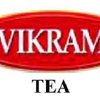Prepare for Your Estel Technologies Interview with Real Experiences!
View interviews1 Estel Technologies Full Stack Developer Job

Full Stack Developer - MERN Stack Masters Program
7-14 years
Gurgaon / Gurugram
1 vacancy
Full Stack Developer - MERN Stack Masters Program
Estel Technologies
posted 3+ weeks ago
Job Role Insights
Flexible timing
Job Description
Software Development
50+ OOPs Interview Questions and Answers for 2025
Table of Contents 50+ OOPs Interview Questions and Answers for 2025 Share This Article: Last updated on Oct 14, 2024 71509 OOPS, or , is a fundamental concept in programming. If you are from a technical background, an interviewer expects you to know about OOPs. To make sure you do not miss the chance in your following interview, we have assembled basic and advanced oops interview questions.
However, these OOPS interview questions are not limited to freshers but experienced and developers too.
Basic OOPs Interview Questions
Let us start with some basic OOPs interview questions.
1. Why do we need to use OOPs OOPs needs to be used for:
- making programming clearer and problem-solving more concise
- reusing code with the help of inheritance
- reducing redundancy
- encapsulation
- data hiding
- the division into subproblems
- program flexibility using polymorphism
If one class shares the behavior and structure defined in another multiple class, it is called multiple inheritance.
Want a Top Software Development JobStart Here! Full Stack Developer - MERN Stack 3. Give an example of encapsulation. The notion of data hiding is referred to as encapsulation. Protected and private members in are examples.
4. What is the difference between overloading and overriding Overloading is two or more methods having the same name but different parameters. It is solved during compile-time. Whereas, Overriding is an OOPs concept that allows sub-classes to have a specific implementation of a method already provided by its parent class. It is solved during runtime.
5. Define protected access modifier. A protected access modifier is accessible by own class and accessible by derived class but not accessible by the world.
6. What is the function of a super keyword The super keyword keyword is used to forward a constructor s call to a constructor in the superclass. It invokes the overridden method that allows access to these methods and the superclass s hidden members.
7. What is compile time polymorphism When a polymorphic call is made, and the compiler knows which function is to be called; this is known as compile-time polymorphism. The features like function default arguments, overloading, and templates in C++ support compile-time polymorphism.
8. How can you call a base class method without creating an instance It is possible to call the base class without instantiation if it s a static method and some other subclass has inherited the base class.
Want a Top Software Development JobStart Here! Full Stack Developer - MERN Stack 9. One of the key OOPs interview questions could be to give a real-life example of data abstraction. While driving a car, you know that on pressing the accelerator, the speed will increase. However, you do not know precisely how it happens. This is an example of data abstraction as the implementation details are concealed from the driver.
10. What is the purpose of this keyword To refer to the current object of a class, this keyword is used. It is used as a pointer that differentiates between the global object and the current object by referring to the current one.
11. What is meant by the term OOPs OOPs stands for Object-Oriented Programming, a programming paradigm that utilizes objects to represent and manipulate data. OOPs aspects are based on the concept of objects, which have properties and methods, and the interactions between them.
12. What are some major Object Oriented Programming languages Major object-oriented programming languages include Java, C++, Python, C#, and .
13. What are some other programming paradigms other than OOPs Other programming paradigms include:
- Functional Programming: This emphasizes using functions and immutable data to solve problems.
- Procedural Programming: This emphasizes breaking a program into small procedures or functions to improve readability and maintainability.
- Logic Programming: This emphasizes using logic and mathematical notation to represent and manipulate data.
- Event-driven Programming: This emphasizes handling events, and the control flow is based on the events.
Structured programming is a programming paradigm that emphasizes breaking down a program into smaller, modular code units, such as functions and procedures, to improve readability and maintainability.
15. What are the main features of OOPs Object-Oriented Programming (OOP)s main features are Encapsulation, Inheritance, Polymorphism, Abstraction, Encapsulation, and Inheritance.
16. What are some advantages of using OOPs Some advantages of object-oriented programming include improved code organization, reusability, and maintainability, as well as the ability to model real-world concepts and encapsulate data and behavior.
17. Why are OOPs so popular OOPs is so popular because it allows developers to organize and structure their code to reflect real-world objects and their interactions, making it more intuitive and easier to understand.
Advanced OOPS Interview Questions
Next up, we will cover some advanced OOPsinterview questions!
1. Explain the concept of inheritance with a real-life example. The parent class is a logical concept, such as a vehicle is a base class that defines the common properties shared by all vehicles. However, child classes are a more specific type of class such as truck, bus, car, etc. Inheritance allows subclasses to inherit common attributes of a vehicle and define specific attributes and methods to their own.
2. How is a structure different from a class A structure is a user-defined collection of variables having different . However, it is not possible to instantiate a structure or inherit from it. Thus, it s not an OOPs concept.
3. What is an abstract function An abstract function is a function declared only in the base class. It is redefined in the subclass as it does not contain any definition in the base class.
4. Name three operators that can t be overloaded. - :: Scope resolution operator
- . Pointer to member operator
- . dot or Member access operator
Data abstraction refers to the ability to hide unwanted information. At the same time, encapsulation refers to hiding data as well as the method together.
6. Are there any limitations of inheritanceIf yes, then what Yes. The limitations of inheritance are:
- Increased execution effort and time
- Tight coupling of parent and child class
- Requires correct implementation
- Requires jumping between different classes
The functions that help achieve runtime polymorphism are a part of functions present in the parent class and overridden by a subclass.
8. List down the limitations of Object-Oriented programming. - It requires intensive testing
- Not apt for minor problems
- It requires good planning
- It takes more time to solve problems
- Problems need to be thought in term of objects
The base class is the root class- the most generalized class. At the same time, the superclass is the immediate parent class from which the other class inherits.
10. What is the access modifier for methods inside an interface All the methods inside an interface are public by default, and no other modifier can be specified.
Get access and complete hands-on experience on a plethora of software development skills in our unique Job Guarantee bootcamp. Get job-ready with HackerEarth and HIRIST by enrolling in our comprehensive Masters program today! 11. What is a class A class defines a template for creating objects; the objects created from a class are known as instances of that class. A class also defines the interface for interacting with objects of that class, specifying which methods can be called and what parameters they take.
12. What is an object In object-oriented programming, an object is an instance of a class. It is a self-contained unit of code and data with its properties and methods. An object is a specific instance of a class and can be created at runtime.
Master Core Java 8 Concepts, Java Servlet More! Java Certification Training 13. What is encapsulation Encapsulation is a mechanism for hiding the internal details of an object from the outside world. It is one of the fundamental principles of object-oriented programming, along with inheritance and polymorphism. Encapsulation is achieved by using access modifiers (such as publicor private) to restrict access to the members of a class.
14. What is polymorphism Polymorphism is a concept in object-oriented programming that allows objects of different classes to be treated as objects of a common superclass. The basic idea behind polymorphism is that a single function or method can be written to operate on multiple things.
There are two types of polymorphism:
- Compile-time polymorphism (also known as static polymorphism) is achieved through function or operator overloading.
- Runtime polymorphism (also known as dynamic polymorphism) is achieved through function overriding.
C++ supports polymorphism through a feature called . A virtual function is a member function declared virtual in the base class and can be overridden in derived classes. When a virtual function is called through a base class pointer or reference, the program will determine at runtime which version of the function to call based on the actual type of the object being pointed to or referenced.
16. What is abstraction Abstraction is a process of hiding the implementation details of a class or an object and showing only the necessary information to the users. It is a technique of displaying only the essential features of an object and hiding the background details, which helps to reduce complexity and increase efficiency.
17. How much memory does a class occupy The amount of memory a class occupies in C++ depends on the size of its data members and any base class it inherits from.
The size of a class is the sum of the dimensions of all its data members. For example, a class with an int data member and a double data member would occupy 8 bytes on a system with 4-byte ints and 8-byte doubles.
18. Is it always necessary to create objects from class No, it is not always necessary to create objects from a class. A class can be used to define a blueprint for creating things, but it is not required to create an object from a class to use its methods or access its properties.
19. What is a constructor A is a special member function of a class that is automatically called when an object is created. It is used to initialize the objects state and allocate any resources it needs. Constructors have the same name as the class and do not have a return type.
20. What are the various types of constructors in C++ In C++, several types of constructors include default constructor, parameterized constructor, copy constructor, and move constructors.
21. What is a copy constructor A copy constructor is a special constructor that is used to create a new object as a copy of an existing object. It takes a reference to an object of the same class as its argument and creates a new object with the same state as the original object.
22. What is a destructor A is a special member function of a class that is automatically called when an object of the class goes out of scope or is deleted. It is used to release any resources that the object was holding and perform any other necessary cleanup. Destructors have the same name as the class with a tilde (~) prefix and do not have any return type.
Advance Your MERN Stack Career in 6 Months! Full Stack Developer - MERN Stack 23. What are the various types of inheritance In C++, there are several inheritance types including single, multiple, multi-level, hierarchical, and hybrid inheritances.
24. What is a subclass A subclass is a class derived from another, known as the superclass. The subclass inherits the properties and methods of the superclass and can also have its properties and methods.
25. Define a superclass A superclass is a class used as the base class for one or more derived classes. A superclass defines properties and methods shared by all of its derived classes.
26. What is an interface An interface is a collection of pure virtual functions that define a contract for a class to implement. It is a way to achieve abstraction in C++.
27. What is meant by static polymorphism Static polymorphism, also known as compile-time polymorphism, is a form of polymorphism in which the type of an object is determined at compile-time. It is achieved through and .
28. What is meant by dynamic polymorphism Dynamic polymorphism, also known as runtime polymorphism, is a form of polymorphism in which the type of an object is determined at runtime. It is achieved through function overriding.
Related Interview Guides
An abstract class is a class that cannot be instantiated, and it is usually used as a base class for other classes. An abstract class contains at least one pure virtual function.
30. How is an abstract class different from an interface An abstract class can contain concrete and pure virtual functions, while an interface can only contain pure virtual parts.
31. What are access specifiers, and what is their significance Access specifiers are keywords in object-oriented programming languages that determine the level of access to a class, method, or variable.
The significance of access specifiers is to control the visibility and accessibility of class members, preventing unintended modification and promoting encapsulation.
32. What is an exception An exception is an abnormal event or error that occurs during the execution of a program, which can disrupt the normal flow of the program.
Advance Your MERN Stack Career in 6 Months! Full Stack Developer - MERN Stack 33. What is meant by exception handling refers to catching and managing exceptions that occur during the execution of a program. It handles runtime errors and unexpected conditions, allowing the program to continue running instead of crashing.
34. What is meant by garbage collection in the OOPs world Garbage collection is a feature in object-oriented programming languages that automatically frees up a programs memory that is no longer being used.
35. Can we run a Java application without implementing the OOPs concept No, Java is an object-oriented programming language, and the core concepts of OOPs, such as classes, objects, and inheritance, are fundamental to the language.
Conclusion
We hope that this article serves as an excellent last-minute revision for your following OOPs interview. Object-oriented programming takes some time to master, and the best way to do it is to associate with its application, such as . If you are interested in knowing more about the actual world application of OOPs, this is just the right one for you!
Our Software Development Courses Duration And Fees
Software Development Course typically range from a few weeks to several months, with fees varying based on program and institution.
Cohort Starts: 20 Nov, 2024
Cohort Starts: 20 Nov, 2024
4 Months 1,10,000 Cohort Starts: 27 Nov, 2024
Cohort Starts: 27 Nov, 2024
8 months 53,999 Cohort Starts: 18 Dec, 2024
Cohort Starts: 18 Dec, 2024
7 months 40,000 Cohort Starts: 8 Jan, 2025
Cohort Starts: 8 Jan, 2025
6 Months 53,999 Recommended Reads
prev Next Get Affiliated Certifications with Live Class programs with Live Class programs Java Certification Training
- 24x7 learner assistance and support
- 40+ micro skilling exercises 6+ work-like professional projects
- Develop expertise in 10+ full stack development tools and frameworks
- Disclaimer
- PMP, PMI, PMBOK, CAPM, PgMP, PfMP, ACP, PBA, RMP, SP, OPM3 and the PMI ATP seal are the registered marks of the Project Management Institute, Inc.
Employment Type: Full Time, Permanent
Read full job description
What Full Stack Developer at Estel Technologies are saying
Full Stack Developer salary at Estel Technologies
reported by
1
employee
with 4
years exp.

₹7.2
L/yr - ₹9.2
L/yr
11%
less
than the average Full Stack Developer Salary in India
View more details
What Estel Technologies employees are saying about work life
based on 44 employees
Flexible timing
Monday to Friday
No travel
Day Shift
Similar Jobs for you
Full Stack Developer - MERN Stack Masters Program
7-14 Yrs
Gurgaon / Gurugram
Python, Project Management, Coding +5 more
Share an Interview































